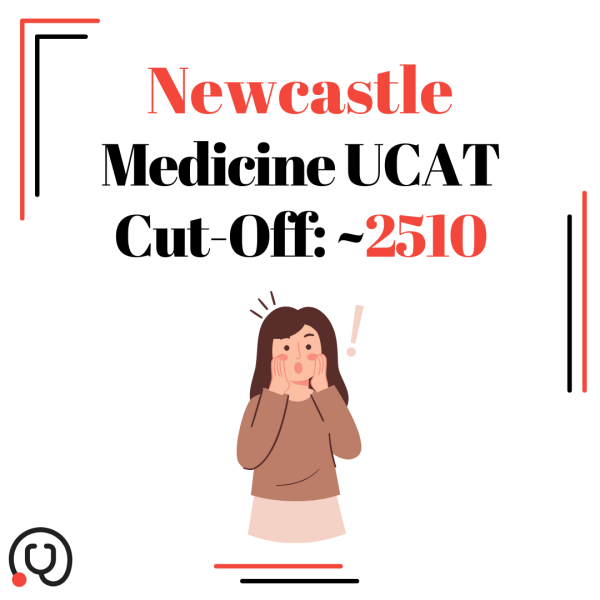Newcastle Medicine Interview Offers Released: 2510 UCAT Cut-Off for Non-Rural Applicants

3 months ago by Chris
The University of Newcastle has released 2025 medicine interview offers for the Joint Medical Program (JMP), with the UCAT ANZ cut-off for non-rural applicants reaching 2510 (98th percentile).
Medicine entry has become increasingly competitive across Australia and New Zealand. This year's 2510 UCAT cut-off demonstrates just how high the bar has risen, with even very strong candidates missing out on interview offers.
Understanding the High Cut-Off
Several factors contribute to Newcastle's elevated cut-off:
Increased Number of UCAT Candidates
In 2025, approximately 16,950 students sat the UCAT ANZ, compared to 15,240 in 2024, representing an 11% increase. With more candidates aiming for the same number of interview offers, universities must set higher cut-offs to manage the larger applicant pool, meaning scores that would have secured an interview in previous years may no longer be sufficient.
Open to Interstate Applicants
Unlike universities such as Western Sydney or Adelaide (and many others) that heavily preference local, non-rural students, Newcastle accepts applications from across Australia for both non-rural and rural students. This means Newcastle has a higher cutoff as they accept applications for high achieving students that other universities may not.
Reserved Entry Pathways
Interview places at Newcastle are allocated to several special entry schemes, which allow eligible applicants to receive an interview offer at a lower UCAT threshold. These include:
- Rural applicants through the Rural and Remote Admission Scheme (RRAS)
- Bachelor of Biomedical Science graduates from Newcastle, who can apply through a dedicated Biomedicine pathway
- The Joint Medical Program Communities Entry List (CEL), designed to increase JMP student representation from the Hunter New England, Central Coast, and Mid-North Coast Local Health Districts
While these reserved pathways are essential for improving diversity and supporting regional representation, some may have the effect of reducing the number of places available for general applicants. As places are reserved for these pathways, the general non-rural UCAT cut-off naturally increases.
For more information about Newcastle's entry support schemes, visit the official university website.
Next Steps If You Didn’t Receive an Offer
Missing out on an interview offer is disappointing, but many students who don't succeed initially go on to gain entry at other universities or in subsequent years. Here are strategic options to consider:
Wait for Other Interview Offers
Several universities release interviews at different times throughout the cycle. Continue monitoring your application portals and checking your email regularly for updates from other institutions.
Consider a Gap Year and Resit UCAT
A gap year can provide valuable time to strengthen your application. Use this period to:
- Focus on comprehensive UCAT preparation with trusted practice resources
- Build work or volunteer experience in healthcare or community service settings
- Develop your interview and communication skills for the next application cycle
Many students improve their UCAT scores by 200 or more points on their second attempt with focused preparation. Ensure you receive specialist advice if you are considering this pathway.
Commence a Related Undergraduate Degree
Consider starting a course such as Biomedical Science, Health Science, or another course, either at Newcastle or another institution. At Newcastle specifically, Biomedical Science offers a pathway into medicine at a lower UCAT threshold (the rural cutoff, even if you are not classified as rural), providing an alternative route into the JMP.
Key Takeaways
Newcastle's 2510 cut-off is part of a broader trend across Australian medicine programs. With record UCAT candidate numbers and limited medical places, securing a spot has become increasingly challenging at universities across Australia.
If you have yet to receive a medical interview offer, there are still options available, as outlined in this blog. For those who receive interview offers, the real work begins. The interview stage is where you demonstrate the qualities medical schools are looking for. Starting your preparation early gives you time to develop the confidence needed to perform under pressure.


